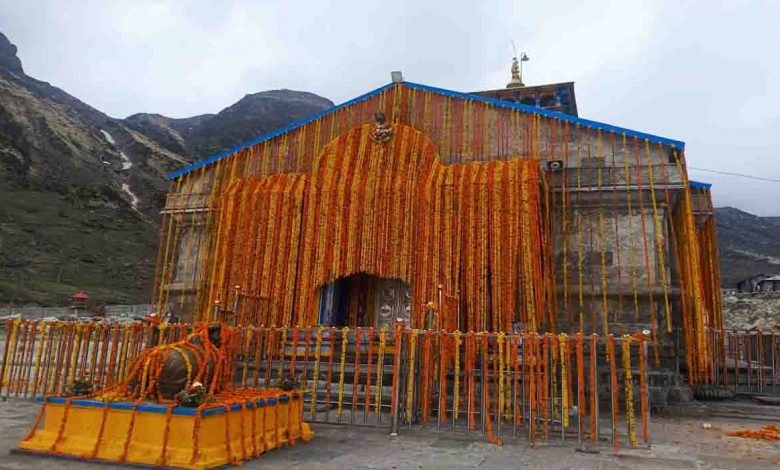Kedarnath shrine to be ritually reopened today

Monday, 17 May 2021 | PNS | Rudraprayag
All arrangements have been completed for the ritual reopening of the Kedarnath temple early on Monday morning. The temple has been decorated with about 11 quintals of flowers. As scheduled, the temple will be opened ritually at 5 AM on Monday.
Tourism and Culture minister Satpal Maharaaz informed that the Char Dham Devasthanam Management Board and temple committees are conducting the first prayers in all the Char Dham shrines on behalf of the Prime Minister Narendra Modi for public welfare.
The doli carrying the Panchmukhi idol of lord Kedarnath arrived here on Saturday evening. In view of the Covid guidelines in place, only a limited number of priests will be allowed in the shrine during its reopening and on other days with the state government suspending the Char Dham Yatra due to the Covid surge. It is pertinent to mention here that while Yamunotri and Gangotri were reopened on May 14 and May 15 respectively, Badrinath shrine will be reopened on May 18.






